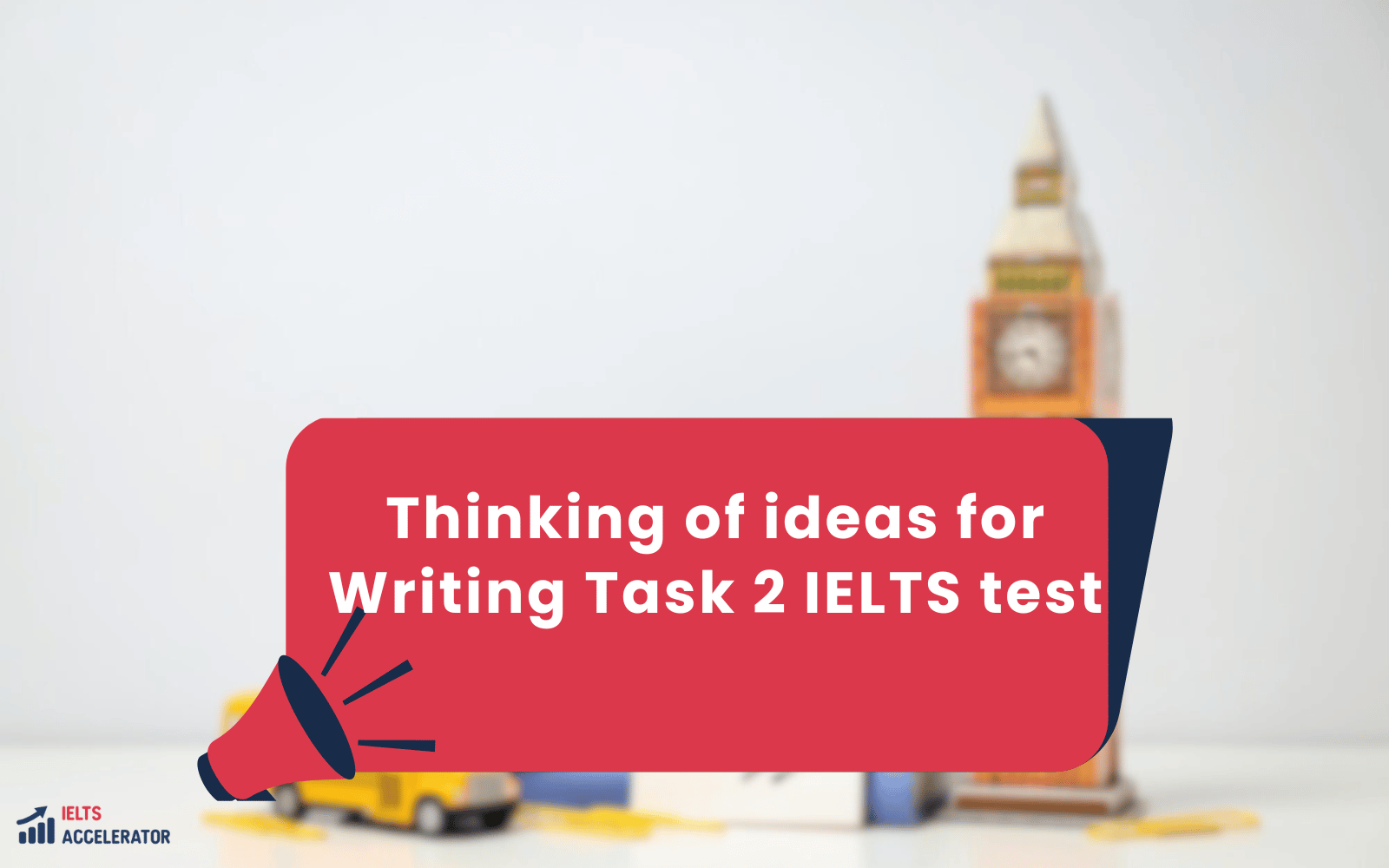You can use multiple strategies for Writing Task 2 questions to produce better ideas. In this article, I’ll show you what they are so that you can choose your own strategies, follow the same steps and improve the quality of your ideas for Writing Task 2 IELTS test.
One of the main things that students struggle with is getting ideas for writing the response to IELTS Writing Task 2 essay, the fear is that they will draw a blank in the exam and find that they have no ideas to write about. This fear is perfectly normal.
But don’t worry help is at hand, ideas for this section do not have to be hard to generate! and there are ways to beat it.
- The first thing you need to understand is that most questions come from familiar topics such as health, education and the environment. These topics are usually common contemporary issues that are typically discussed throughout the world over, so more often than not you will have a background to the topic which will you most likely can relate to from your experience in your own country.
- Secondly, remember that this is primarily a language test, and not a test of your own personal general knowledge, or specialist knowledge. The topics are general issues experienced by the majority of modern-day societies.
Many students worry that their ideas are not good enough, or they are too boring. The examiner is totally not interested if they are entertaining or not! Examiners only want to see your ability to write an essay in English supported by evidence and examples – interesting ideas aren’t required but what your topic must be is directly related to the question being asked. You can have the most mundane idea in the world and still get a perfect score of 9, as long as it’s relevant!
The right idea for an IELTS exam might not be relevant or interesting to you, but it will be to the IELTS examiners. So, stop thinking about what your college professors would want and focus on giving the IELTS examiners what they want. They will grade you favorably if you do so.
Strategies for Writing Task 2
- Knowing which topics often appear
- Reading around topics
- Brainstorming
- Mind Mapping
- Using Wh- Questions
- Imagine (or even really) talking casually with a friend
You’ll have to choose which one works for you and try it out until you find the one that best fits your needs. When practicing, remember: the examiner is looking for relevant topics that you’re able to support with evidence. The one that gives you ideas quickly will be the best fit for this exam. In each essay, there is time for only two or three minutes worth of idea generation, so don’t worry if this takes a lot of work now—practice makes perfect! To start practicing, choose a strategy below and set your own personal deadline.
Choose what’s right for you
At the end of the day there is no single ‘right’ way – trial them all but you should choose what is best for you. However there some clear advantages of some of the methods over others, and hey you might just end up using a few different ones together. I recommend a combination of these while practicing and combining 2 specific methods for the exam.
Word of warning
Using a few different methods to help you while you are practicing is a great way of helping generate lots of ideas, however in the exam you will need to choose a method you can work with which gives you a quick result.
As with any of these methods, never spend too much time on this stage. Some students spend too much time brainstorming ideas before they start writing their essay and this can negatively affect the outcome. Secondly, often students can end up with ideas that are too general but usually practice helps this problem.Everything You Need To Know About IELTS Writing Task 2. Learn more
Log in here and find out more.





